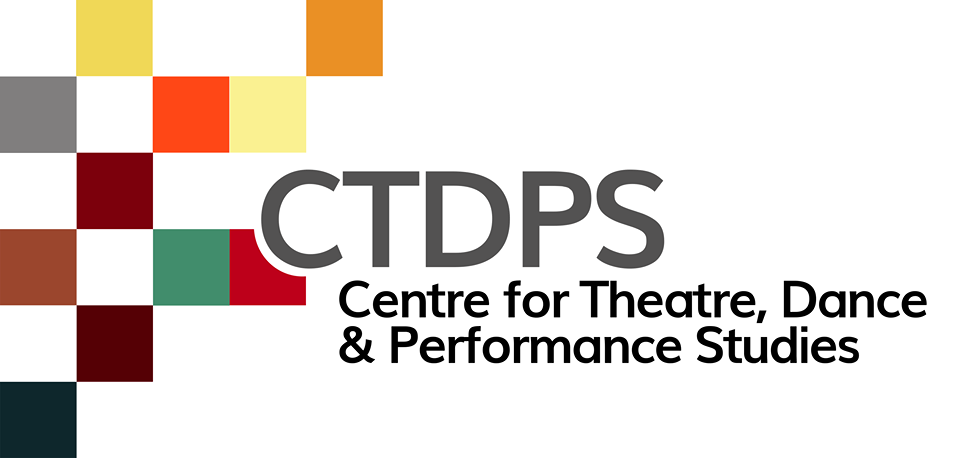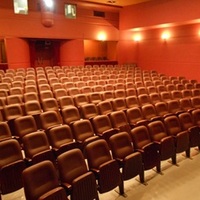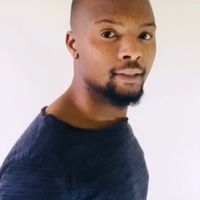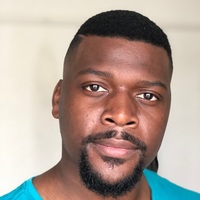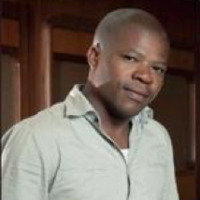Nothing but the Truth
Title
Nothing but the Truth
Department
Theatre
Keywords
South African Theatre
See all items with this value
Adaptation
See all items with this value
Production Type
Third Year Student Production
See all items with this value
Description
Presented by UCT’s CTDPS and featuring graduating 3rd Year Theatre & Performance students, this partially translated isiXhosa adaption of John Kani’s debut as sole playwright, “Nothing but the Truth” uncovers the secrets of sibling rivalry, of exile, of memory and reconciliation, and the ambiguities of freedom in a fledgling democracy.
In a first for the UCT CTDPS, the performance will be available via a live streaming on Friday 13th November 2020.
Directors note:
Since my first experience of the play, I have always been haunted by the line “The taking never stops” from ‘Nothing but the Truth’ by Dr John Kani. This was and remains of the most reflective piece of work to the lives of the black people at the time of the first black democratic elected president and of the Truth and Reconciliation Commission - one of the major breakthroughs in post-apartheid South Africa. This was the time of the exiles returning home. The choice and exploration of staging the work is the result of many years of being haunted by these lines and the desire of imagining it being partly translated into isiXhosa.
Translated and adapted by the performing company. The show is performed by Mpumelelo Phanginxiwa and Nomakhosi Meveni. Directed by Mandla Mbothwe with lighting design by Bamanye Yeko, set design by Lungile Cindy, Sound Scape by Elvis Sibeko and under the stage management of Thando Doni.
It is the story about family secrets and conflicts, a story about siblings, about traditions versus so called “modern ways”. It is a story that actives memory, about truth, deferred dreams and reconciliation of black south African.
People who know my work, my processes of making that work which in turn gives a greater influence on its aesthetics may have the same shock that I have when I first saw my John Kani’s ‘Nothing but the Truth’ set on stage. As a director, I have never been found attracted to someone’s writing in a way that I want to put it on stage. And on the rare occasion that it does happen, it is because I had found something so strong in the writing that it continues to dictate my heartbeat in times of my creative process. Even so, I must always find my voice as a way of breathing new life into an old story. I must always find a way to have a deep conversation with the writer and previous directors and actors and combine this with the current time, context, circumstances and desires.
The following where these given circumstances:
-First, we knew we wanted not only to reclaim the story in content but own it in Language. For this reason, we had set out to translate 70% of the script into IsiXhosa. This was also due to the fact that the production needed to cater for the Bilingual acting stream for our graduating students.
-Second was the unforeseen circumstances of losing one student due to personal reasons during the rehearsal process.
All these for me and for the actors provided a glimpse and sites of what I call the Stories’ gift to the teller. Once the actors were convinced that the process had not collapsed, and that it was still possible to tell the story without the third actor, we were all driven by faith and trust that the story being created in the rehearsals and the original script will give us a direction.
It is the most rewarding experiences when hearing some of the translated sections, phrases and words to realize how much meaning and resemblance they carry to those that speak the language and from whose culture the story originates. As a person who has watched John Kani as an actor, public speaker and writer, I could now truly hear the narrative of his heartbeat.
It is through this process that we seek to find out more about these characters and what they really represented in the lives of Black South Africans during that mutated time of fear, excitement, hope and despair. During that time of public storytelling of gruesome acts of apartheid rule, all while the rest of the world was watching. During the time when the national agenda was to heal the country through individual stories. Where all pains where painted with the rainbow colours and dreams of better futures for all, where the golden pedestal was sold so intensely to us that if anything seemed to be in contradiction with those spirits, it was perceived as evil, for it was against peaceful progress. It was also the time of violence in black townships and other communities which was orchestrated by various forces, driven by political agendas.
Once again, just like in times of apartheid, the blood, the death, the funerals, the destroyed dreams, the buried hopes, the silenced voices, the burnt crop field were those of the black people, the poorest and the majority of the country.
In a first for the UCT CTDPS, the performance will be available via a live streaming on Friday 13th November 2020.
Directors note:
Since my first experience of the play, I have always been haunted by the line “The taking never stops” from ‘Nothing but the Truth’ by Dr John Kani. This was and remains of the most reflective piece of work to the lives of the black people at the time of the first black democratic elected president and of the Truth and Reconciliation Commission - one of the major breakthroughs in post-apartheid South Africa. This was the time of the exiles returning home. The choice and exploration of staging the work is the result of many years of being haunted by these lines and the desire of imagining it being partly translated into isiXhosa.
Translated and adapted by the performing company. The show is performed by Mpumelelo Phanginxiwa and Nomakhosi Meveni. Directed by Mandla Mbothwe with lighting design by Bamanye Yeko, set design by Lungile Cindy, Sound Scape by Elvis Sibeko and under the stage management of Thando Doni.
It is the story about family secrets and conflicts, a story about siblings, about traditions versus so called “modern ways”. It is a story that actives memory, about truth, deferred dreams and reconciliation of black south African.
People who know my work, my processes of making that work which in turn gives a greater influence on its aesthetics may have the same shock that I have when I first saw my John Kani’s ‘Nothing but the Truth’ set on stage. As a director, I have never been found attracted to someone’s writing in a way that I want to put it on stage. And on the rare occasion that it does happen, it is because I had found something so strong in the writing that it continues to dictate my heartbeat in times of my creative process. Even so, I must always find my voice as a way of breathing new life into an old story. I must always find a way to have a deep conversation with the writer and previous directors and actors and combine this with the current time, context, circumstances and desires.
The following where these given circumstances:
-First, we knew we wanted not only to reclaim the story in content but own it in Language. For this reason, we had set out to translate 70% of the script into IsiXhosa. This was also due to the fact that the production needed to cater for the Bilingual acting stream for our graduating students.
-Second was the unforeseen circumstances of losing one student due to personal reasons during the rehearsal process.
All these for me and for the actors provided a glimpse and sites of what I call the Stories’ gift to the teller. Once the actors were convinced that the process had not collapsed, and that it was still possible to tell the story without the third actor, we were all driven by faith and trust that the story being created in the rehearsals and the original script will give us a direction.
It is the most rewarding experiences when hearing some of the translated sections, phrases and words to realize how much meaning and resemblance they carry to those that speak the language and from whose culture the story originates. As a person who has watched John Kani as an actor, public speaker and writer, I could now truly hear the narrative of his heartbeat.
It is through this process that we seek to find out more about these characters and what they really represented in the lives of Black South Africans during that mutated time of fear, excitement, hope and despair. During that time of public storytelling of gruesome acts of apartheid rule, all while the rest of the world was watching. During the time when the national agenda was to heal the country through individual stories. Where all pains where painted with the rainbow colours and dreams of better futures for all, where the golden pedestal was sold so intensely to us that if anything seemed to be in contradiction with those spirits, it was perceived as evil, for it was against peaceful progress. It was also the time of violence in black townships and other communities which was orchestrated by various forces, driven by political agendas.
Once again, just like in times of apartheid, the blood, the death, the funerals, the destroyed dreams, the buried hopes, the silenced voices, the burnt crop field were those of the black people, the poorest and the majority of the country.
Language
English
isiXhosa
Script Type
Adapted
Year Created
2020
Opening Date
12 November 2020
Closing Date
13 November 2020
Start Time
18h00 for performance on the 12th
19h30 for live streamed performance on the 13th
Performance Venue
Geographic Location of Performance
Cape Town
Producer
CTDPS
Director
Text By
John Kani
Translated By
Performing Company
Cast
Musical/ Sound Composer
Set Designer
Lungile Cindi
Lighting Designer
Bamanye Yeko
Stage Manager
Linked resources
Filter by property
| Title | Class | |
|---|---|---|
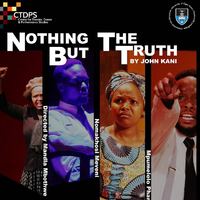 |
 Nothing but the Truth poster Nothing but the Truth poster |
Poster |
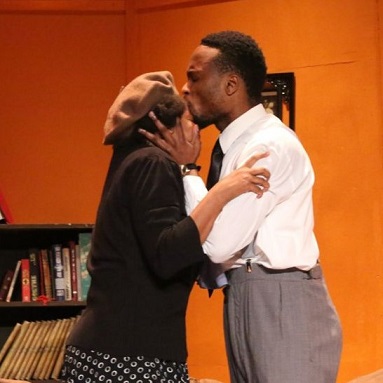 |
 Nothing but the Truth production album Nothing but the Truth production album |
Image |


